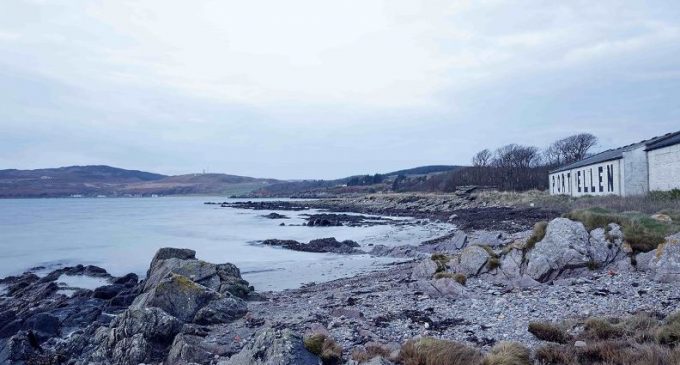Diageo Celebrates ‘2015-2020 Sustainability and Responsibility’ Achievements

Diageo, maker of Johnnie Walker, Smirnoff and Guinness, has celebrated the conclusion of its highly ambitious 2020 Sustainability and Responsibility Goals. Originally set in 2008, and refreshed in 2015, the goals were among the most ambitious and stretching in the industry. Diageo was among the first companies to set its greenhouse gas (GHG) reduction targets in line with the principles of the Science Based Targets initiative and an early adopter of absolute, rather than relative, GHG reduction targets.
On water stewardship, in 2019 Diageo was appointed a Global Goals Business Avenger[4] as the business champion for UN Sustainable Development Goal 6: “Ensure availability and sustainable management of water and sanitation for all”. This financial year[5], Diageo has replenished 1,400,000m3 of water, the equivalent of 560 Olympic sized swimming pools[6], in water-stressed areas.
Ewan Andrew, Chief Sustainability Officer at Diageo, says: “As we close our 2020 targets, we are incredibly proud of the progress we have made and grateful to our employees and selected partners who have helped us deliver transformational progress. Through our programmes, we have made a positive impact on millions of people, in communities all around the world. We have been agile and moved quickly to adapt to the global changes around us. We are excited about the decade of action ahead and will continue to lead the way, driven by the knowledge that our future success is intertwined with the success of the living planet around us.”
The 2020 targets were selected to align with the UN’s Sustainable Development Goals and designed to cover Diageo’s three main focus areas: reducing environmental impact, building thriving communities and promoting positive drinking. Key highlights delivered include:
- Cutting greenhouse gas (GHG) emissions from direct operations by 509,000 metric tonnes, delivering on its commitment to reduce absolute emissions by 50%[7].
- Reducing emissions by over a third (33.7%) across its total value chain, going beyond its original 30% target[8].
- In water stressed areas, replenished 100% of the water used in our final product.
- Ensured that over 99.5% of its packaging is recyclable and achieved 45% recycled content in its packaging.
- Achieved zero waste to landfill in all operational sites and offices.
- Supported more than 250,000 people through its projects focused on clean water, sanitation and hygiene (WASH) in 2020.
- Empowered 435,000 women to date through its community programmes.
- Championed diversity such that 39% of leadership positions are now held by women, going beyond its original target of 35%.
The full report can be accessed here.
Diageo has also long supported the World Health Organization’s goal of reducing harmful drinking by 10% across the world by 2025 and has set itself stretching targets to reach in this area over the next five years. So far, it has reached over 229 million people with moderation messages via its brands and helped educate 1 million young people, parents and teachers about the dangers of underage drinking.
Despite this significant progress, however, Diageo has not quite achieved all its ambitious goals. As reported in 2019, it has not met the full improvement it wanted in the quality of wastewater it discharges, with 90% of its operational sites meeting the stretching target (noting it remains within consent levels granted by local regulators). However, Diageo did deliver a 46.3% improvement in water use efficiency against a target of 50%, only missing the goal due to delayed water recycling projects in Africa and lower packaged volumes in some markets both as a direct result of COVID-19 impacts. It has also found reducing the overall weight of its packaging by 15% more challenging than expected, still delivering a strong 11% reduction with the starting point on lightweight glass making it a tough challenge. Having delivered the goal of 80% of raw materials sourced locally in Africa 2 years early it slipped to 79% over the last quarter of the year, as a direct result of COVID-19 volume impacts.
Over the last decade pursuing its sustainability and responsibility goals, Diageo has adapted its programmes to improve their impact and has seen the benefit of an increased holistic and aligned approach within the business and with our vital third party partners. No business can deliver meaningful targets alone and it will be crucial that this focus and partnership approach is maintained as the world continues to combat both climate change and the effects of the COVID-19 pandemic.
Reflections from the last five years of working towards these goals are:
- The importance of linking sustainability to core business strategies. Diageo’s clean water, sanitation and hygiene programme is an integral part of its water strategy, focusing on communities directly connected to its core business while supporting Diageo’s successful drive to replenish water in water-stressed areas.
- How important it is to have total alignment within the business and strong sponsorship from leaders, as well as effective execution monitoring.
- Inclusion and gender equality should be built into every community programme, rather than treated as a separate objective.
- Early investment in infrastructure and a process of continuous improvement are key to success.
- It is possible to increase Diageo’s impact through long-term, strategic NGO partnerships with organisations like CARE International UK and WaterAid. Diageo benefits from its partners’ in-depth knowledge of local contexts and programme design, so that together we can address issues such as inequality, water stress and climate change.
In the coming months, the company will also be announcing a new set of targets to help further support in the delivery of the UN Sustainable Development Goals over the critical decade to 2030.
[1] Baseline year is 2007
[2] Baseline year is 2007
[3] By 30.06.2020
[4] https://business.globalgoals.org/business-avengers
[5] 1.07.2019 to 30.06.2020
[6] One Olympic swimming pool contains 2.500 m3 water
[7] Baseline year is 2007
[8] Baseline year is 2007


































